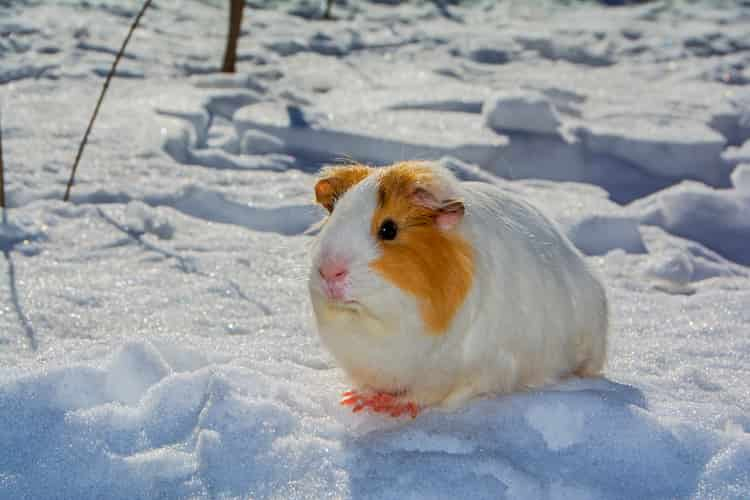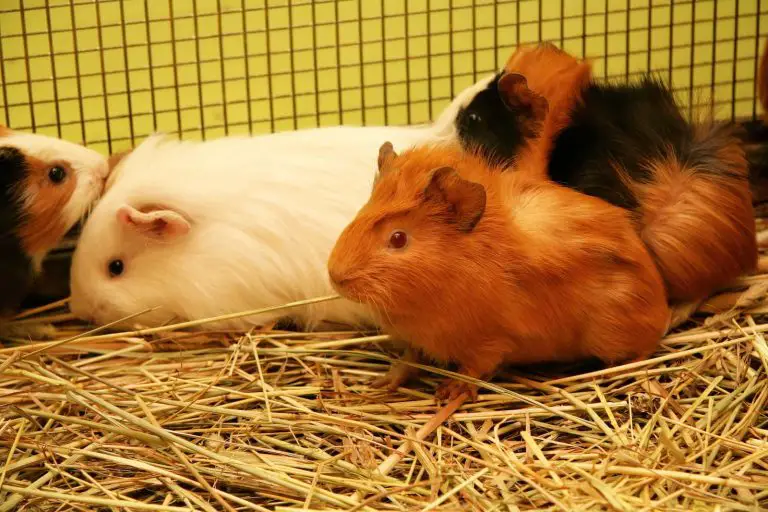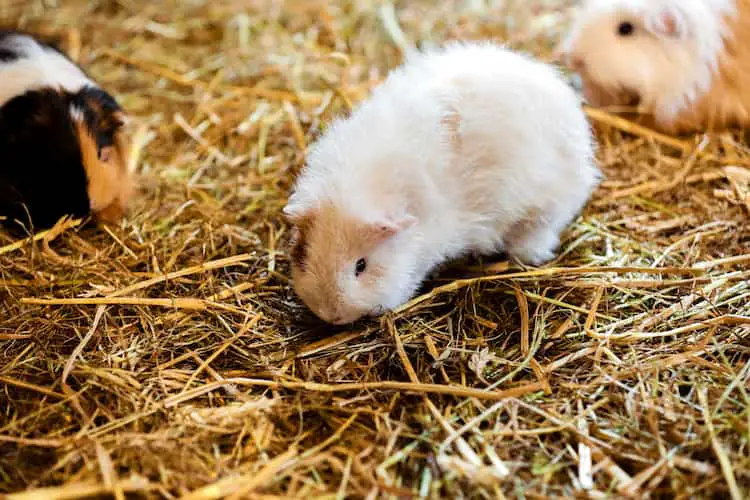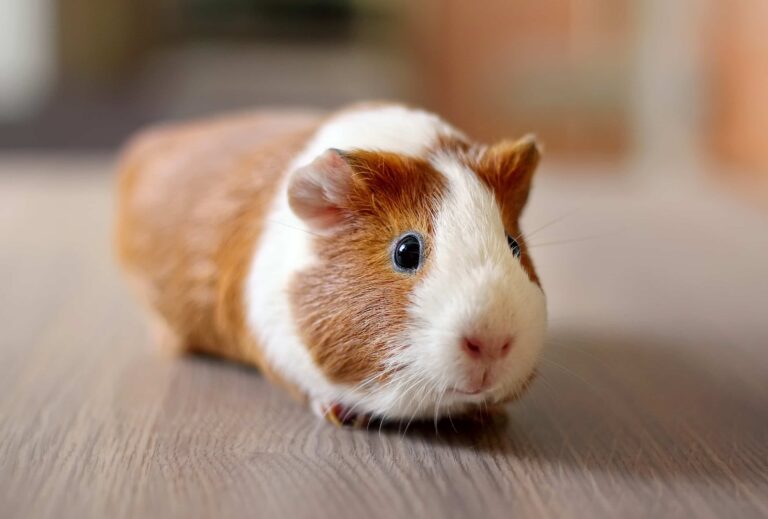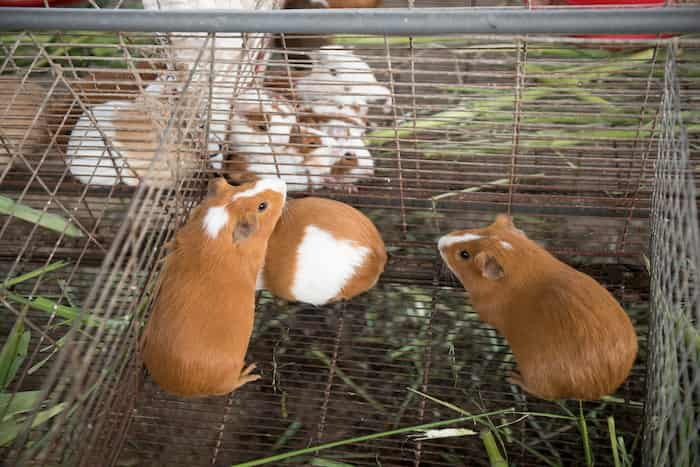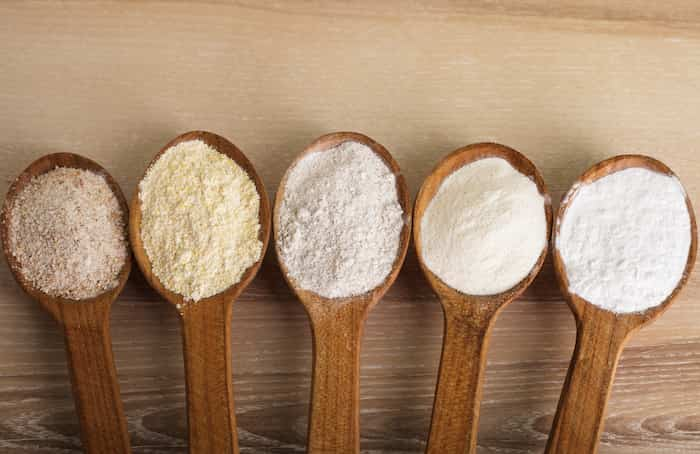Do Guinea Pigs Like Snow?(In Depth Guide)
Most guinea pigs, including domesticated guinea pigs, hate snow and must never be out in the cold. They are susceptible to colder temperatures and can end up falling gravely ill owing to direct exposure to the cold, and can even end up dying.
Snow coupled with strong cold winds is something their body is not equipped to handle and as a result exposure to such conditions can be very detrimental to their health.
Let’s take a deeper look at this topic…
Are guinea pigs afraid of the cold?
Guinea pigs hate cold weather. Any drop in temperature below 18°C can be detrimental to them. They like to be in warmer conditions.
Many other animals, including members of the same rodent group that guinea pigs are part of, undergo hibernation during the colder months of the year to put up with colder weather outside and the scarcity of food.
They drop their body metabolic rate and body temperature and go into a state of sleep to conserve their energy better in absence of sufficient food sources and to again wake up in the warmer months of the year when food is available properly again.
But guineapigs unlike other rodents cannot hibernate during the colder months of the year. They hence are afraid of the cold as they won’t be able to survive under extremely low temperatures.
So they need to find suitable shelter to protect themselves from the cold and find ways to regularly serve their appetite.
Can guinea pigs die from cold?
Guinea pigs can die from cold as their body is not equipped to survive under low temperatures. With the reduction in temperature, guineapigs will get more and more vulnerable to extreme stress, frostbite, and hypothermia. This can leave them extremely ill and can lead to death.
The Guinea pig’s ideal temperature is 18°C to 24°C. Any temperature below 18°C to 15°C is unhealthy for these rodents.
- Guineapigs have got the capability of conserving their body energy by limiting their blood flow when the temperatures reduce below their comfort zone.
- However, if they remain under such conditions for a long time or if the temperatures further fall below, they can fall gravely ill and even die from freezing.
So as a human caregiver you must ensure that they are well taken care of to ensure that they don’t get affected due to the cold weather. If you are a new owner this is more important for you. If you are unsure about what you are doing, the easiest option is to bring them indoors.
“My guinea pig is cold and lethargic”-What to do?
Consult with a vet immediately. Only experts can acutely determine the condition of the guinea pig.
You should not waste time trying out home remedies as time is crucial and you don’t want to have any regrets later on. So if you think that the guinea pig is really in a dire condition and is closer to death, take him or her to the vet and abide by their guidelines.
After consulting with the vet you can abide by certain tips to further make your guineapig recover faster:
- Provide the guinea pig with warmth. Turn up the temperature of the room. Provide a heating pad or a heating lamp to heat up the cage. Put the guinea pig in the cage with other guinea pigs as they will cuddle together to keep the sick guinea pig warm.
- Feed the guinea pig softer food items that will be easier to consume and will get digested without any trouble. If the guinea pig is having trouble eating you can use a feeding syringe to bypass that problem.
- Be there for your guinea pig. Spend time with him or her. Rub your fingers slowly on their body or tap them gently., let them know that you are there.
How to keep guinea pigs warm
- Start by properly insulating their hutch. Cover all the wall surfaces of the hutch with blankets and carpets. Nail them down to make sure strong wind doesn’t move them from their position.
- Move the hutch under a shed-like area and don’t directly keep them out in the open. This will reduce the wind and cold exposure to some extent.
- Keep plenty of hay in their hutch so that those can keep them warm. Buy them a heating pad which you can warm up from time to time and put back in the hutch. The guineapigs can snuggle into the heat pads when they feel cold.
- Having multiple guinea pigs living together in the same hutch will allow them to snuggle with one another which will help them to be warm.
If you are still not sure about the arrangements and whether they will feel comfortable outside in the cold, it’s best to move them inside the house at least for the wintertime.
Can Guinea pigs be outside in the winter?
FAQ
What temperature is too hot for guinea pigs
Any temperature above 24°C or 75°F can be too hot for the guinea pigs and the chances of them suffering a stroke increases with the rise of each degree.
What is the lowest temperature for guinea pigs?
Guineapigs do well under temperatures of 18°C to 24°C(65°F to 75°F). Any temperature lower than 15°C(60°F), is bad for their health as their body cannot handle cold very well.

